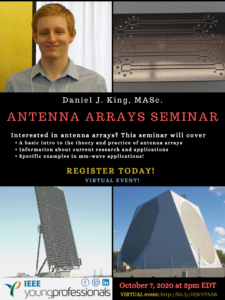Events

The role of Internet and Communication Technology (ICT) in
bringing about a revolution in almost all aspects of human life needs no
introduction. It is indeed a well-known fact that the transmission of
information at a rapid pace has transformed all spheres of human life such as
education, health, and economy to name a few. In addition, with the advent in
Electronics and Photonics Technology (EPT), we have observed sustained growth
and expansion in computation and display technology. From user demography
perspective, urbanized population are the major beneficiary of such advances.
Therefore, the benefits of ICT and EPT are yet to be experienced by almost 4
billion people in the world who are still “unconnected or under-connected†and
suffer as such from the “digital divide,†a term coined in order to emphasize
the lack of ICT infrastructure in many parts of the world.
Major challenges for widespread adoption of ICT and EPT in
these areas are related to cost, lack of power supply, and complexities
associated with learning and usage. However, if we can categorically overcome
these challenges, then these technologies can be used for food, water, shelter,
energy, environment, education, healthcare, and security. In addition, the
wide-spread availability of these technologies, will lead to smart suburbs,
smart towns, smart villages, etc., without the need to necessarily live in
smart cities. This would reverse the trend and allow a more sustainable world
with a more balanced distribution of the population density. In this context,
this talk will present recently proposed solutions to provide high speed
connectivity in rural areas along progress in affordable electronics to serve
and contribute to the development of far-flung regions.
In particular, new solutions for both: (i) integrated
satellite-airborne-ground networks providing global coverage and connectivity
and (ii) terrestrial mesh/multi-hop directive networks connecting underserved
areas will be discussed.
Moreover, some examples of democratized wearable
electronics using Do-It-Yourself (DIY) assembly of paper along Android DIY
applications capturing and displaying vital health signs over connected
smartphones for real-time diagnosis will be presented.
Fields-CQAM Public Lectures: Ali Ghodsi, University of Waterloo
What is missing from common practice in machine learning?
AI, and machine learning in particular, is enjoying its golden age. Machine learning has changed the face of the world over the past two decades but we are still a long way from achieving a general artificial intelligence. In this talk, I will discuss a couple of elements that I believe are missing from common practice in machine learning, including incorporating causality and creating a new framework for unsupervised learning.
Biography

Ali Ghodsi is a Professor in the Department of Statistics and Actuarial Science at the University of Waterloo. His research involves statistical machine-learning methods. Ghodsi’s research spans a variety of areas in computational statistics. He studies theoretical frameworks and develops new machine learning algorithms for analyzing large-scale data sets, with applications to bioinformatics, data mining, pattern recognition, robotics, computer vision, and sequential decision making.
DATE:
THURSDAY, JUNE 20TH, 2019.
PRESENTATION
6:00 PM – 7:00 PM.
NETWORKING
7:00 PM – 8:00 PM.
LOCATION
HEALTH SCIENCE BUILDING, RM. 1301 (LOCATED ON THE GROUND FLOOR), CARLETON UNIVERSITY.
FREE ADMISSION FOR THIS PUBLIC LECTURE.
PLEASE REGISTERÂ HERE.

| 8:30 am – 9:00 am | Registration | ||
|---|---|---|---|
| 9:00 am – 9:15 am | Opening Remarks | Rafik Goubran | Carleton University |
| 9:15 am – 10:00 am | Keynote Presentation:
Data Mining and Machine Learning for Authorship and Malware Analyses |
Benjamin C. M. Fung Biography |
McGill University |
| 10:00 am – 10:30 am | Break | ||
| 10:30 am – 11:45 am | Cybersecurity: Top 5 class imbalance ML challenges and data sets Abstract |
Stephan Jou Biography |
Interset |
| Class Imbalance in Fraud Detection Abstract |
Robin Grosset Biography |
MindBridge Analytics Inc. | |
| Handling class imbalance in natural language processing Abstract |
Isuru Gunasekara Biography |
IMRSV Data Labs | |
| 11:45 am – 12:45 pm | Lunch | ||
| 12:30 pm – 2:10 pm | Adaptive learning with class imbalanced streams Abstract |
Herna L. Viktor Biography |
University of Ottawa |
| Radar-based fall monitoring using deep learning Abstract |
Hamidreza Sadreazami Biography |
McGill University | |
| Privacy-preserving data augmentation in medical text analysis Abstract |
Isar Nejadgholi Biography |
National Research Council | |
| Failure modelling of a propulsion subsystem: unsupervised and semi-supervised approaches to anomaly detection Abstract |
Julio J. Valdés Biography |
National Research Council | |
| 2:10 pm – 2:25 pm | Break | ||
| 2:25 pm – 3:40 pm | TBD | Reddy Nellipudi | DB Schenker |
| AuditMap.ai: Hierarchical Sentence Classification in Unstructured Audit Reports Abstract |
Daniel Shapiro Biography |
Lemay.ai | |
| Deep Learning techniques for unsupervised anomaly detection Abstract |
Dušan Sovilj Biography |
RANK Software Inc. | |
| 3:40 pm – 3:50 pm | Closing Remarks |

Date: October 7th 2020
Time: 5:00 – 6:30 pm EDT
Venue: Online – http://bit.ly/DJKYPAAS
Event Contact: Daniel J King (danieljamesking3@gmail.com)
IEEE Ottawa Young Professional Affinity Group presents an Antenna Arrays Seminar by MASc. Daniel J. King. Feel free to register and join us in this exciting event. Some of the topics covered are:
- A basic introduction to the theory and practice of antenna arrays;
- Information about current research opportunities and applications;
- Specific examples in mm-Wave applications!
Register today to this virtual event!
More info here: https://www.ieeeottawa.ca/wp-content/uploads/2020/09/antennas.pdf
IEEE Canada Technology Leadership Monthly Webinar
Speaker: Alan R. Emery, Founder, The Stable Climate Group
Topic: Net Zero 2050? Canada’s Options in a Human-Caused Hot World
Registration Link: https://events.vtools.ieee.org/m/249205
Flyer/PDF: The-2020-IEEE-Canada-Technology-Leadership-Webinar-Series-VII
Summary
The sources of human-caused global warming will be presented briefly followed by overwhelming evidence that global warming is real and dangerous.  The speaker will position Canada in a global hot world context. Next, a synopsis of the scale required to get to net zero 2050 and the psychology of global fossil fuel “addiction†will be discussed.  A broad series of what could be excellent options for an innovative future Canada to lead the world by example with a focus on engineering opportunities combined with social and economic requirements will be outlined. Finally, the more probable trajectory for Canada and the world given the current Canadian and world governance in a predatory capitalistic world will be presented.  Even in this dangerous future probability, Canada has many favourable options, if it plans carefully.
Biography
Alan received his BSc. from the University of Toronto; MSc. from McGill University; and PhD from Cornell University and University of Miami. His scientific specialty is ecology and evolution with a focus on marine sciences. He pioneered in direct observation
underwater at night on coral reefs and in fresh water. He was among the first to dive under the ice in the Arctic. He has led expeditions to the Arctic, Atlantic, Pacific and Indian Oceans. He was a research scientist with the Fisheries Research Board of Canada, the Ministry of Natural Resources in Ontario, professor at the University of Toronto, Curator and Sciences Coordinator at the Royal Ontario Museum, President of the Canadian Museum of Nature, and has been the governor, president, or director of many scientific organizations. When his brother fell terminally ill, Alan brought his engineering company back to a profitable position to be sold by his brother’s family.
He has published nearly 100 scientific, technical, and popular articles and books spanning subjects from marine biology to the management of academic organizations. He has appeared on hundreds of radio and television interviews and has been the subject of, technical advisor for, or written over 150 television shows for CTV, Discovery, and the CBC.
As part of his work with indigenous people, he prepared policy papers for Canada, the World Bank and the UN. In addition, he has worked as a consultant with the Canadian Nuclear Waste Management Organization almost since its inception.
Recently, Alan has moved his primary attention from global biodiversity loss to the solution of human-caused global warming. In 2015, he initiated and is now leading an international group of scientists and engineers to help solve the global warming problems: The Stable Climate Group.

